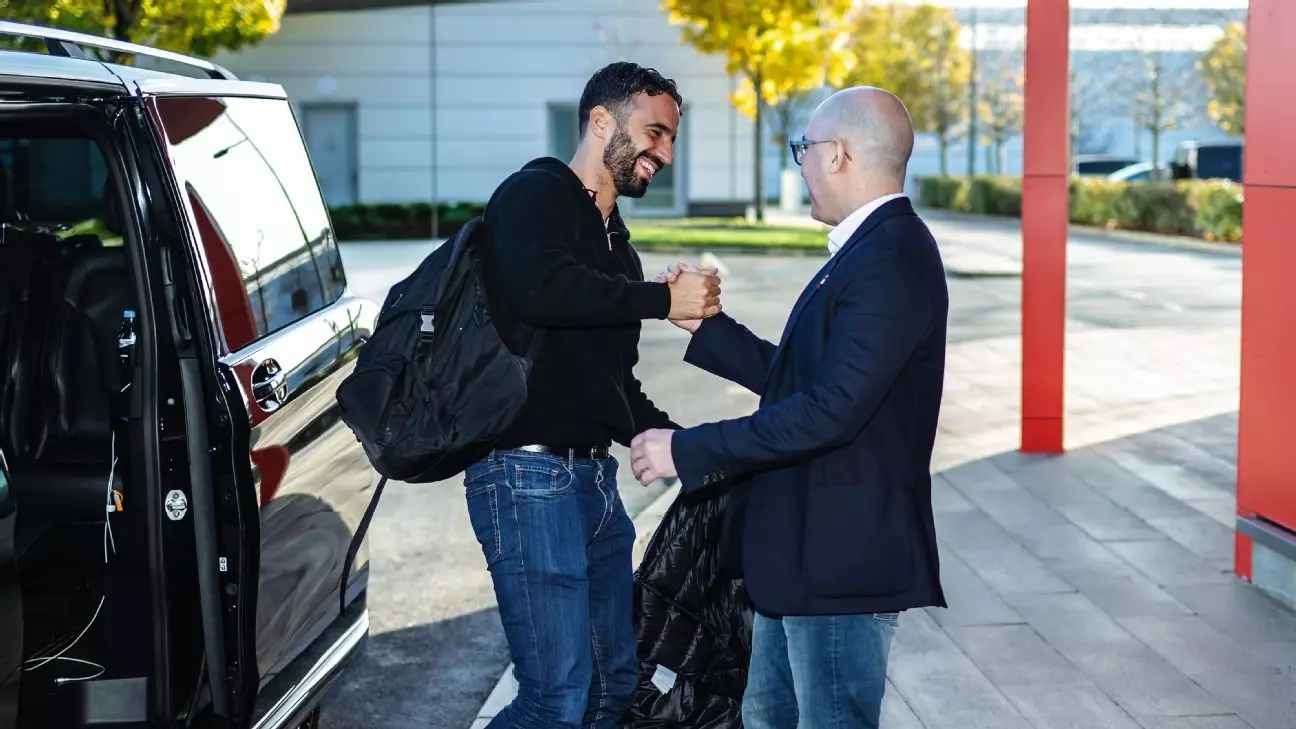The appointment of Rúben Amorim as Manchester United’s head coach marks a pivotal moment for the club as it seeks to navigate the turbulent waters following Erik ten Hag’s departure. Amorim, the 39-year-old Portuguese manager who has garnered attention for his tactical acumen, is not just a name on a list; he embodies a fresh vision aimed at revitalizing a club that has faced its fair share of challenges. While there is optimism surrounding his integration, the smooth transition hinges on several factors, primarily revolving around his work permit.
As Amorim awaits his visa, the club’s insiders remain confident that the bureaucratic process will be resolved in a timely manner, allowing him to lead the team before their match against Ipswich Town. Sources close to the situation indicate that the process is progressing “positively.” This confidence underscores Manchester United’s desire to prevent any disruptions in Amorim’s coaching debut, a necessity for establishing stability in the team dynamics.
It’s intriguing to consider that while Amorim brings a fresh approach to the coaching staff, the club faces the concurrent challenge of securing work permits for his support team. Until this is finalized, the composition of his backroom staff remains a closely guarded secret, reflecting the layers of complexity involved in modern football management.
Rúben Amorim’s arrival coincides with notable exits within the coaching ranks. Ruud van Nistelrooy, who temporarily filled the role of caretaker manager, has now departed, along with several other staff members. This loss, while unfortunate, opens a pathway for Amorim to instill his own philosophy without the weight of lingering legacies. However, the retention of Darren Fletcher signals that some continuity might remain in the club’s operational structure, which could be vital for maintaining a sense of familiarity during this transition period.
Upon landing in Manchester, Amorim did not waste any time familiarizing himself with the club’s operations. A visit to Carrington, where he met key executives and interacted with players, illustrates his commitment to building rapport from day one. Engaging with players recovering from injury showcases his proactive approach and willingness to understand the squad’s current climate. However, with many first-team players on international duty or taking well-earned breaks, the true test of his rapport-building will begin once the squad reunites.
Unconventionally, Amorim’s introduction to the media will not follow the traditional unveiling format but will instead happen just before his first match. This move may reflect an understanding of the need for a smooth narrative flow as he takes the helm. Given the mounting fan expectations, particularly with a quick succession of fixtures ahead, capturing the support of both the press and supporters early on will be critical for his tenure.
As Amorim gears up for his inaugural game at Portman Road and subsequent home match against Bodo/Glimt in the Europa League, the urgency for results is palpable. Building a team that resonates with both the club’s storied history and its ambitious future will be a journey highlighted by challenges, opportunities, and hopefully, a resurgence for Manchester United.

